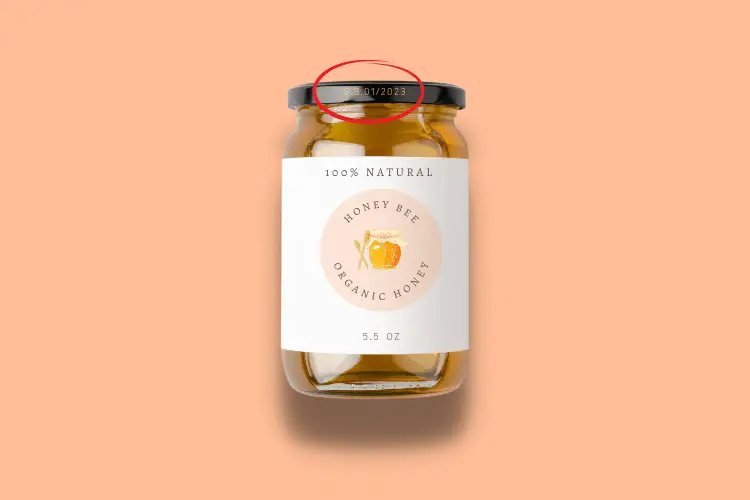Honey is a natural sweetener that has been enjoyed for many years. Bees produce it from the nectar in flowers and it’s famous for its unique properties – such as never spoiling!
But, if that’s true, why does it have an expiration date when we buy it from a supermarket?

Does Honey Ever Go Bad?
Honey is an exceptional product. If stored and handled correctly, it doesn’t spoil, unlike most foods.
Why Doesn’t Honey Spoil?
Foods spoil because of the growth of bacteria, yeast, and mold. Most of our food provides a suitable environment for these microorganisms to live and get nutrients from. However, honey is a notable exception.
While honey is considered a tasty and nutritious treat for us, it’s also a hostile environment for most microorganisms – most microbes and bacteria can’t reproduce or grow in honey.
This is due to a few characteristics:
- Honey has low moisture – honey’s moisture content is usually between 15%-18%. With not enough water, bacteria and other microorganisms can’t thrive.
- Honey has high sugar content – The high sugar concentration in honey causes osmosis. This inhibits the growth of bacteria because the sugar content pushes the water out of the bacterial cells. The cells then shrink and die due to dehydration.
- Honey is acidic and has a low pH – Honey has a pH between 3.2 and 4.5, which means it is highly acidic. Most microorganisms grow at a pH ranging from 6.5 to 7.5. Therefore honey is an unsuitable environment for microbial growth.
- Honey contains hydrogen peroxide – After collecting nectar, bees store it in their honey stomachs, where they add enzymes that break down the sugars in the nectar. One of these enzymes (glucose oxidase) produces hydrogen peroxide from some of the glucose.
Honey doesn’t spoil, but it can still get contaminated!
Although honey can be kept for years without spoiling, poor handling and storage increase the risk of contamination with pathogens that can have adverse health effects.
Because honey absorbs water, storing it in a tightly sealed container is essential. Otherwise, it will absorb moisture from the environment and dilute the sugar, increasing its risk of fermentation and bacterial growth.
So, If Honey Definitely Doesn’t Spoil, Why The Expiration Date?
Although an adequately stored jar of honey won’t spoil, it will still undergo changes over time, such as crystallization, change of color, loss of flavor, and aroma. The expiration date is a way to inform consumers and sellers how long they can expect the honey to maintain its desired quality and taste. In other words, expiration dates in honey are more a matter of quality than food safety.
The recommended shelf life of honey for best quality and freshness is two years.
Is It Safe To eat expired honey?
Yes, it’s still safe as long as it hasn’t been contaminated and the jar or recipient has been kept sealed.
Like I said before, honey typically changes after a certain time. For example, it can become cloudy and solid and lose some flavor and aroma intensity.
However, if in doubt, throw it out – if you have any suspicion your honey has come into contact with contaminants, it’s best to throw it away.
It’s common for honey to ferment when the moisture content exceeds a certain level. If your honey has a sour smell, a foamy layer on the top, and there’s gas buildup in the recipient, your honey has likely started to ferment, and you might want to discard it.
Conclusion
When handled and stored correctly, honey does not spoil. However, it goes through physical and chemical changes over time that can change the quality. Therefore the expiration date is a way to inform consumers how long the honey is expected to maintain its initial quality and flavor.
If you’ve found an expired jar of honey and are wondering whether you can eat it or not, you certainly can. First, however, ensure it hasn’t come into contact with potential contaminants and has been adequately sealed during storage.
